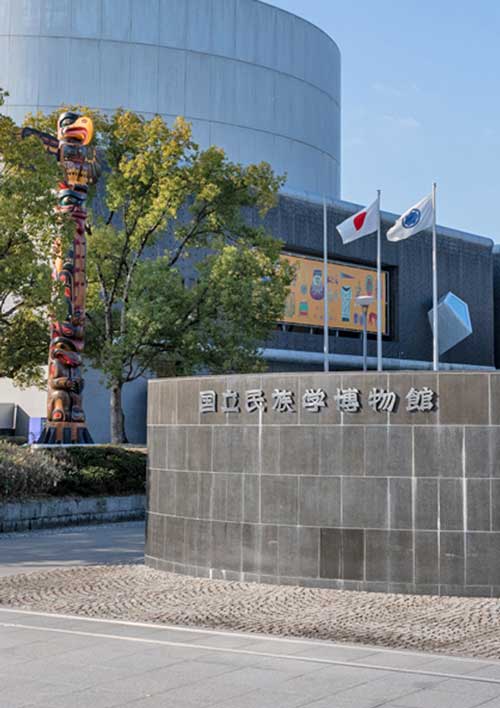特別研究 第5回オンライン研究会 Performing Arts and Conviviality

| 日時 | 2022年3月21日(月・祝)10:00 – 12:00 |
|---|---|
| 場所 | オンライン開催 |
| 使用言語 | 英語 |
| 対象者 | 一般公開(参加無料/要事前申込/定員50名) |
| 参加申込 |
登録フォーム (3月18日締切) |
| 問い合わせ | E-mail:fken●minpaku.ac.jp ※●を@に置き換えてご送信ください。 |
Program
| Singing Solo, Sharing Time: Singing Contests of Filipinos in Japan. | Michiyo Yoneno-Reyes (University of Shizuoka) |
| New Collaborations among Japanese, Zainichi Koreans, and Filipinos through Music and Performing Arts in the Higashi-Kujyo area of Kyoto-city. | Nagata Atsumasa (Miyagi Gakuin Women’s University) |
| Chair: Mashino Ako (Tokyo University of the Arts) | |
Abstracts
Singing Solo, Sharing Time: Singing Contests of Filipinos in Japan
Michiyo Yoneno-Reyes
This presentation reflects on the music activities of Filipinos in Japan through a case study of Utawit––the singing contest which Filipinos in Japan have been organizing since 2005. The presentation is based on my ethnographic fieldworks in Tokyo, Kanagawa and Shizuoka since 2018, as well as on my observations of the cyber communities of Filipinos since the outbreak of COVID-19 in 2020. Utawit was initially conceived in 2004 to promote Filipinos’ talent in singing in Japan. The context then was that there were tens of thousands of Filipinas who had been working in Japan since the 1980s as singers/dancers and hostesses at night clubs (e.g., appx. 82,000 Filipinos entered Japan with entertainer visa in 2004), and thousands of Filipino-Japanese marriages were registered each year (e.g., appx. 10,000 cases in 2005). Some of the night club workers had been residing in Japan for a few decades by then with a long-term visa, if not naturalized, and their occupation had been diversified. Utawit has offered a space for ex-entertainers to present their skills of singing to, primarily, their fellow Filipinos in Japan and at the same time for young would-be singers to grab an opportunity to climb the ladder in the entertainment world, if granted a prize.
The paper first illustrates the historical rootedness of Filipino musicians’ overseas work since the colonial periods. Then follows an ethnographic description of Utawit, in which Filipino contestants and audience formulate a communitas with conviviality. The paper discusses that the prominence of singing in both public and intimate spheres in the Philippine society enhances the Filipino diasporas’ overnight community making away from home. It further argues that the very nature of music as time art with beats is an essential element to induce simultaneity. The paper seeks to provide a new insight to understand the music activities of diasporas beyond identity making through the concept of conviviality.
New Collaborations among Japanese, Zainichi Koreans, and Filipinos through Music and Performing Arts in the Higashi-Kujyo area of Kyoto-city.
Nagata Atsumasa
In Japan, academic studies have inadequately addressed how foreign migrants have connected with Japanese people and other migrant groups through music and the performing arts. This presentation focuses on how Filipino migrants form relationships with Japanese residents and ‘Zainichi Koreans’ by participating in festivals featuring music and the performing arts. Zainichi Koreans immigrated from the Korean Peninsula during the Japanese colonial era and today make up approximately twenty percent of the population in Higashi-Kujyo. In recent years, this area has become an arrival city for Koreans entering Japanese society. In 2012, a Filipino self-help community from the Cathedral Catholic Church in Kyoto-city began to promote social activities through the Kyoto City Multicultural Exchange Network Salon operated by a Catholic social welfare corporation known as House of Hope. Some of the Filipino residents, along with members of the Japanese community, formed a music group called Japinoy Sessionista to perform at the facility’s seasonal festivals. Some of the members also participate in the Higashi-Kujyo Madang festival, a local festival based on Korean cultural representations. These representations traditionally are performed in rural areas in order to pray for a good harvest and health on the Korean peninsula. For the Higashi-Kujyo Madang Festival, new arrangements have been added to these traditional ritual performances. This presentation clarifies two Filipino movements, one in the Kyoto City Multicultural Exchange Network and one at the Higashi-Kujyo Madang Festival. It outlines the process of how new collaborations between Japanese people and Koreans are being built through music and the performing arts. This process will be examined in light of Filipinos becoming the second visible minority group in this area.
